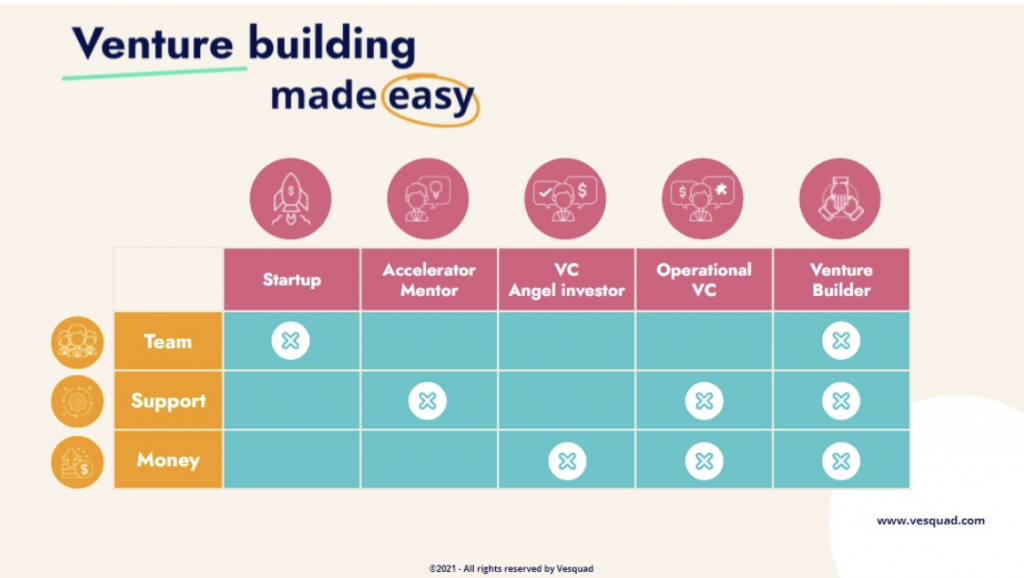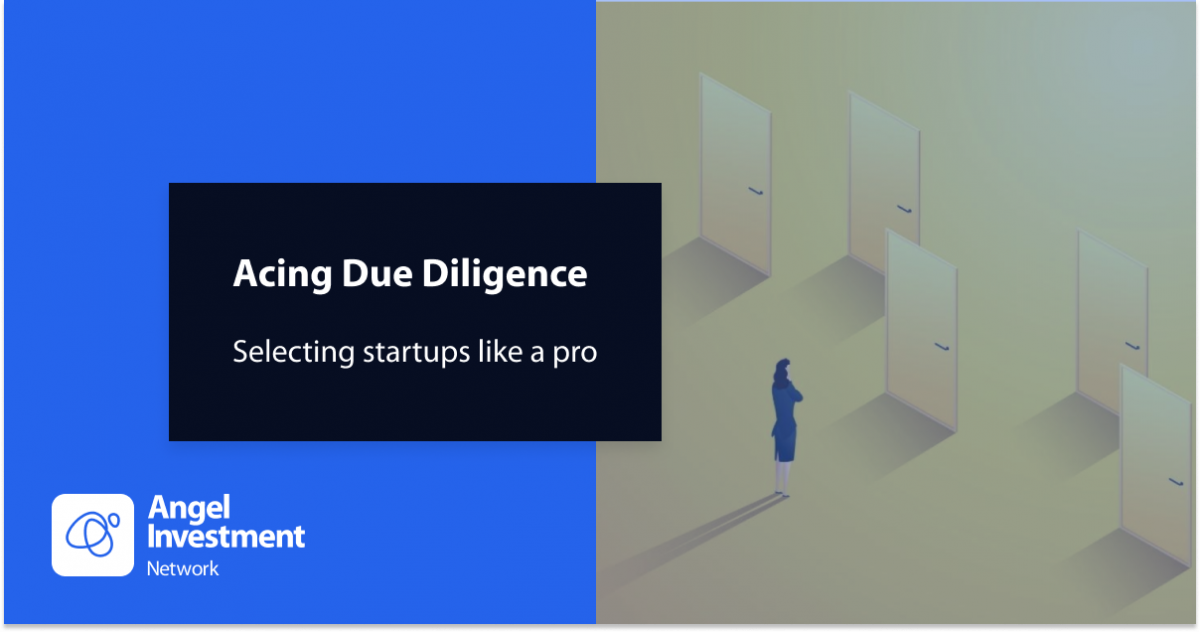Antonis Argyros is the CEO of Vesquad, in this guest post he shares advice about getting Due Diligence right – from setting up processes and using relevant tools, to getting to know the founders. Vesquad support investors by enabling them to provide hands-on support to their portfolio companies through an integrated approach.
As an angel investor, handpicking promising startups that actually do have the potential to succeed is one of the most challenging tasks you’ll have to undertake. Europe in 2021 had one of the best – if not the best- years in terms of startups’ revenue, which possibly exceeded $100 billion in total venture capital investment, according to a report created by Atomico for the investment firm Cambridge Associates. But how can you ensure that you’ll secure a piece of that revenue?
By creating a transparent and objective process of evaluating which ideas and early-stage startups are worth investing in, you’ll be able to identify the most profitable opportunities and increase your revenue through successful exits. Building and implementing such a process allows you to identify a startup’s weak points early on to evaluate which of these can be improved through operational support or which could lead to failure.
For a VC firm with multiple investors, one profitable exit for every ten investments might be an acceptable ratio. For an angel investor, however, a thorough due diligence process is essential in decreasing investment risk as much as possible. Bonus points, providing constructive feedback to the founders of startups that were not selected for funding, gives them the opportunity to improve any weak points and emerge again as a candidate startup with more potential in the future.
However, handling an entire portfolio of companies and at the same time evaluating new investments can be very time-consuming. To make things easier, we’ve gathered the most important steps that will help you during the due diligence process, and the things that you should look out for before investing.
Build a structured process
Before moving on to financials, you probably already have certain basic criteria that a candidate startup needs to meet before investing in it, such as a specific area of focus or a specific market both in terms of technology and geography. If not, make that your number one priority.
Assuming that you have, in order to better examine if those criteria are met, you’ll need to build a structured and transparent process that will ensure there will be a careful evaluation of all the desired parameters before a startup becomes part of your portfolio. The best way to do that is by dividing your process into stages and identifying what you need to examine during each stage. This will help you to quickly eliminate any startups that you don’t think would be a good addition to your portfolio and focus on the ones that seem fit.
Get to know the founding team
We’ll start with the basics, as this is something that is often overlooked, usually due to everyone’s hectic daily schedule or due to the fact that we tend to focus on business and forget about the people. Dedicating some time to grasp a founder’s vision can reveal a lot about the startup they’re trying to build. What their background is, what skills they have and what value they can bring during later stages, what inspired them, and what drives them are all questions that will help you establish a relationship with the people you’ll possibly be in contact with until that much-coveted exit.
Enrich your inventory with the right tools
To gather all the necessary information that will guide you in the right direction and help you conduct the due diligence in the most effective way, you’ll need a series of different tools for each stage of your process. You could start with simple tools, such as an extended questionnaire with targeted questions that will give you an idea about the basics, such as the vision, the value proposition, the market size, and the KPIs. Keep in mind that the entire process should be guided by a positive attitude since the goal is to find the ideal fit for both the investor and the startup so that there is a win-win situation.
At Vesquad, we’ve developed a series of tools exactly for this purpose, that can help you automate the due diligence process by going past the basics and defining in precision the maturity level of each venture.
Adopt the best negotiation tactic for your personality
When negotiating financing, it is important to aim for a result that will be fair for both sides, keeping everyone content, and that the relationship between everyone involved remains intact. The composition of a legal term sheet that will be beneficial to you and at the same time attractive to the startup’s founders, can be achieved through the right negotiation tactic that matches your personality. These tactics have analogs and can be useful or ineffective in reaching a negotiated agreement. It’s crucial to understand how different styles complement one other, how some conflict, and how some have inherent advantages.
Being prepared in advance of the meeting and having a specific plan is crucial. This will give you the opportunity to be prepared about which terms you will be willing to accept and when to abandon the deal, which if it is left to be decided during the meeting can lead to mistakes and ruin the relationship with the founding team. This is why building a relationship beforehand, as mentioned earlier, is crucial. Knowing the people who will attend the meeting could reveal their strengths, weaknesses, motivators, and insecurities, which can give you valuable insight and ensure a better deal.

After the deal has been sealed, what’s next?
We said that selecting the right startups that will lead to a successful exit is one of the many challenges an investor will face. The next big challenge is everything that takes place during the interval right after the investment is made and during the startup’s exit. Maintaining a close relationship with the founding team is equally important even after the investment has been made. There is more and more data showing that founders expect more than money from all their funding sources. So how can you stand out and satisfy that ever-increasing need?
By offering an added value that goes beyond capital itself and focuses on the operational needs startups and their founding teams have in order to grow. This is exactly the value we offer both to investors and entrepreneurs at Vesquad. We can help you adopt an operational model and provide hands-on support to your portfolio companies in order to accelerate their growth and minimize failure rates. From sourcing new ventures to supporting your existing ones, we’ll connect the dots for you so that you can focus on the cool stuff.

